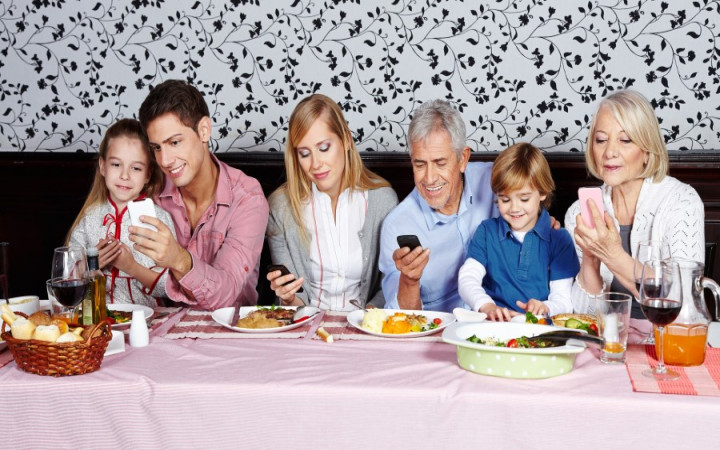Today’s Wonder of the Day was inspired by matthew. matthew Wonders, “What skills does one need to acquire to be a successful conversationalist?” Thanks for WONDERing with us, matthew!
The next time you’re in a public place, look around you. What do you see? Pay close attention to other people. How many of them are having face-to-face conversations? How many have their heads down using a smartphone or tablet?
Advances in technology have changed how people communicate. We’re able to text, email, tweet, and post videos all day long. In many ways, we’re more connected than ever.
Have these new types of communication come at the expense of real, face-to-face conversations? Some experts think so. They say electronic communications aren’t as deep as in-person conversations. You can’t read body language in a text. You also can’t see facial expressions or hear a tone of voice in an email. This leaves much more room for misunderstanding.
Do we really spend that much time on electronic devices? A 2019 study from Common Sense Media found the answer is yes. Most American teens spend over seven hours per day using electronic devices for entertainment and communication. For children between the ages of 8 and 12, the average is nearly five hours per day. Many kids spend even more time on screens at school.
So what’s the big deal? Many people worry that too much screen time can harm and writing skills. It leads people to use less eye contact and be more distracted during in-person communication. This can make it harder to have healthy relationships at home, school, and work.
Does digital communication have any benefits? Of course! It teaches important skills and habits. After all, many people connect through email or chat software at work nowadays. But face-to-face conversations teach other skills that are important for overall well being.
Real-life conversations can turn a bad day into a good day. They make people feel more connected to others. Have you ever felt sad or lonely? If so, you know a smile and a few kind words can turn your mood around.
How can we be sure we don’t lose the art of conversation? Experts urge people to unplug more often. Set aside time without devices. Talk face-to-face with friends and family. Keeping a healthy balance between on-screen and off-screen discussions will make you a better communicator.
When was the last time you unplugged? If you’re not sure, try it right now. Put down your electronic devices and spend time with the people around you. Take time to go for a walk or play outside. Don’t worry, Wonderopolis—and all your other online activities—will still be here when you get back!
Standards: CCRA.L.3, CCRA.L.6, CCRA.R.1, CCRA.R.2, CCRA.R.4, CCRA.R.10, CCRA.SL.1




